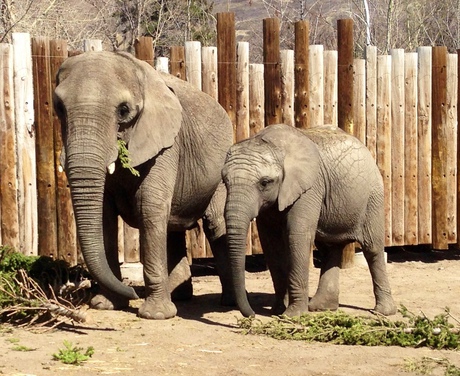Why don't elephants get cancer?

A study led by researchers at the Huntsman Cancer Institute (HCI) at the University of Utah and Arizona State University may have solved an intriguing mystery — why do elephants rarely get cancer?
“Nature has already figured out how to prevent cancer,” said Dr Joshua Schiffman, a paediatric oncologist at HCI and co-senior author of the paper published in the Journal of the American Medical Association (JAMA). “It’s up to us to learn how different animals tackle the problem so we can adapt those strategies to prevent cancer in people.”
According to Dr Schiffman, elephants have long been considered a walking conundrum. Because they have 100 times as many cells as people, they should be 100 times more likely to have a cell slip into a cancerous state and trigger the disease over their long life span of 50 to 70 years — yet they appear to get cancer less often. The study analysed a large database of elephant deaths and estimated a cancer mortality rate of less than 5%, compared to 11–25% in people.
In search of an explanation, the scientists combed through the African elephant genome and found at least 40 copies of genes that code for p53, a protein well known for its cancer-inhibiting properties — humans, on the other hand, only have two. 38 of these alleles are so-called retrogenes — modified duplicates that have been churned out over evolutionary time.

Dr Schiffman’s team collaborated with Utah’s Hogle Zoo and Ringling Bros. Center for Elephant Conservation to test whether the extra gene copies may protect elephants from cancer. They extracted white blood cells from blood drawn from the animals during routine wellness checks and subjected the cells to treatments that damage DNA, a cancer trigger. In response, the cells reacted to damage with a characteristic p53-mediated response: they committed suicide.
“It’s as if the elephants said, ‘It’s so important that we don’t get cancer, we’re going to kill this cell and start over fresh,’” said Dr Schiffman. “If you kill the damaged cell, it’s gone, and it can’t turn into cancer. This may be more effective of an approach to cancer prevention than trying to stop a mutated cell from dividing and not being able to completely repair itself.”
Furthermore, elephants may have a more robust mechanism for killing damaged cells that are at risk for becoming cancerous. In isolated elephant cells, this activity is doubled compared to healthy human cells, and five times that of cells from patients with Li-Fraumeni syndrome, who have only one working copy of p53 and more than a 90% lifetime cancer risk in children and adults.
The findings therefore support the idea that more p53 offers additional protection against cancer, with Dr Schiffman saying, “We think that making more p53 is nature’s way of keeping this species alive.” Additional studies will be needed to determine whether p53 directly protects elephants from cancer.
Dr Schiffman plans to use what he’s learned in elephants as a strategy for developing novel cancer-fighting therapies.
What journalists expect from the scientists they speak to
Peer review is often treated as the end of the story, but for journalists it is usually the point...
European Space Agency inaugurates deep space antenna in WA
The ESA has expanded its capability to communicate with scientific, exploration and space safety...
Black hole collision supports Hawking's landmark theory
Astrophysicists have witnessed a collision between two black holes that was so loud, they were...



